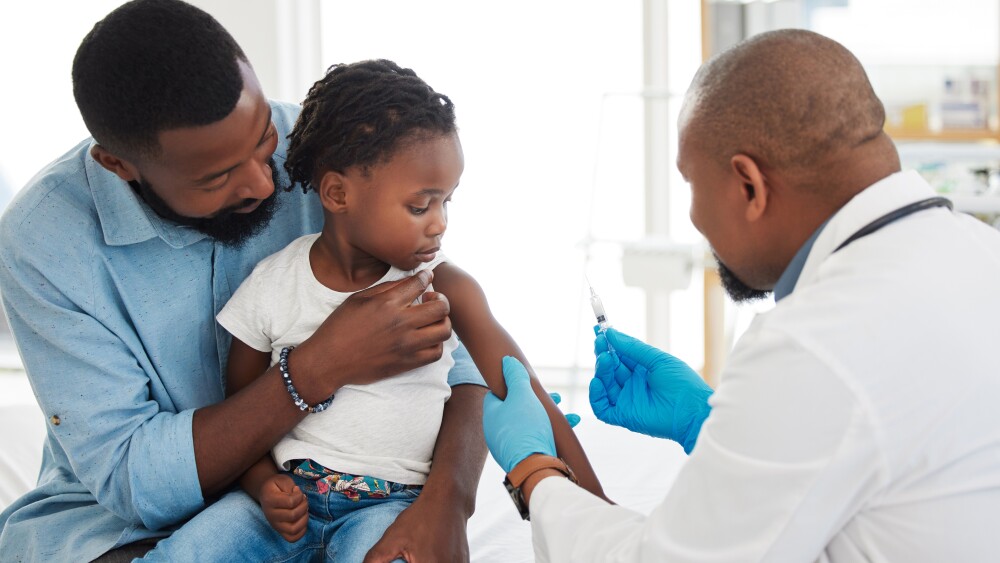The CDC no longer recommends COVID-19 vaccines for healthy children and healthy pregnant women, a position that has been opposed by leading medical societies.
The American Academy of Pediatrics recommends that all children aged 6 to 23 months be vaccinated against COVID-19, a stark departure from the revised schedule Health Secretary Robert F. Kennedy Jr. has pushed for.
The AAP schedule differs “from recent recommendations of the Advisory Committee on Immunization Practices of the CDC, which was overhauled this year and replaced with individuals who have a history of spreading vaccine misinformation,” the organization wrote in a news release on Tuesday.
In May, Kennedy, alongside FDA Commissioner Marty Makary and NIH Director Jay Bhattacharya, announced that the CDC will no longer recommend COVID-19 vaccines for healthy children and healthy pregnant women. “There’s no evidence healthy kids need [repeat COVID-19 vaccination] today, and most countries have stopped recommending it for children,” Makary said at the time.
A few days later, Kennedy purged all 17 members of the CDC’s Advisory Committee on Immunization Practices, before reforming the panel shortly after with fewer advisors, some of whom had documented histories of anti-vaccine activity. Though the new panel skipped the vote on COVID-19 recommendations during its meeting in late June, a few of its new members took the opportunity to question the safety of mRNA vaccines, discrediting the CDC’s own evidence showing that these shots are both safe and effective.
“COVID-19 continues to result in hospitalization and death in the pediatric population. Infants and children 6 through 23 months of age are at the highest risk for severe COVID-19,” the AAP said on Tuesday.
The AAP also endorses a single dose of the COVID-19 vaccine for at-risk kids and teens aged 2 years through 19 years. Risk groups include those likely to develop severe disease, those who live in long-term care facilities and those who have never been immunized against COVID-19. For children and adolescents who are not at-risk, vaccination should also remain an available option should their parents or guardian want it.
Since Kennedy’s arrival as Health and Human Services secretary, leading medical associations have repeatedly criticized his actions and policies, as well as the anti-vaccine rhetoric in which he has played a part. In March, amid a growing measles outbreak, a group of medical societies, led by the American Association of Immunologists and the American College of Physicians and including the AAP, decried the rise of anti-vaccine rhetoric in the U.S., again stating that vaccines are safe and effective.
In an interview with Fox News in April, Kennedy appeared to downplay the importance of vaccination for measles.
“When you and I were kids, everybody got measles, and measles gave you … lifetime protection against measles infection. The vaccine doesn’t do that. The vaccine is effective for some people for life, but for many people, it wanes,” Kennedy said, according to Pulmonology Advisor.
In July, the American Medical Association spoke up to say that Kennedy should not purge the members of the U.S. Preventive Services Task Force, which he has reportedly been considering. The members have not yet been pushed out, however a meeting of the task force was canceled in July.






